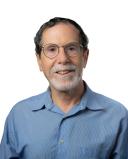Cognition
Overconfidence, Inequality, and “Just World” Thinking
From Lake Wobegon to “American exceptionalism.”
Posted December 23, 2019 Reviewed by Ekua Hagan

In Garrison Keiller’s fictional Lake Wobegon, “all the children are above average.” If it were possible to engineer such things, then maybe all could have better than average life outcomes, as well, and we might make both poverty and inequality disappear with a sufficient dose of positive thinking.
But recent studies in experimental and behavioral economics suggest that the road from Lake Wobegon and its psychological cousin, overconfidence, may actually lead to greater economic inequality, not its elimination. It may also contribute to perpetuating the elitist assumptions that cause attendees of the most prestigious schools to scoop up a disproportionate share of the most attractive and highest-paying jobs, undermining hopes of congruence between meritocracy and social justice. What’s the connection?
Economists have long sought to explain why there’s so much more reduction of income inequality through the government taxation and expenditure systems of European countries than those of the U.S., despite the similar historical backgrounds of their populations and the presence of political democracy on both sides of the Atlantic.
Market economies deliver considerable inequality of before-tax incomes and wealth both in Europe and the U.S., though equal access to education keeps earnings inequality lower in some European countries. Still, in all advanced market economies, incomes are not only unequal, but their distribution curves display a left-of-center modal hump and a long, thin right side tail reflecting ever smaller but still non-zero numbers of households earning very large, larger, and still-more-supersized incomes.
The theory of self-interested, rational voting, therefore, implies that a majority of voters would personally gain more if heavier taxes were placed on those with higher incomes, with expenditures benefiting at least equally those with average and below-average incomes. Why does that “median voter theory” seem to predict better the political outcomes of countries like Germany, France, and Denmark than those of the United States, even though pre-tax incomes are distributed in just as skewed a manner here?
One popular hypothesis has been that the demand for redistribution depends not just on self-interest, but also on moral beliefs. If those who earn more are believed to have achieved their high earnings through hard work and investment in skill acquisition, average earners are reluctant to demand that much be taken from those deserving rich, even for their own benefit. If, on the other hand, high earnings are mostly due to accidents of birth and connections, there’s little or no reluctance to redistribute from the rich.
According to what might be called the “belief in a just world” theory, the demand for redistribution depends on whether the voter believes the inequalities are justly earned, or whether she believes that they’re due to luck, or even to moral turpitude. There’s more redistribution in Western Europe than in the U.S.; this view holds because considerably more Europeans than Americans see inequalities as unearned.
Two researchers in economics at Brown University—Hui-wen Ng and Oleg Semenov—proposed a connection between “just” vs. “unjust world” beliefs, on the one hand, and Lake Wobegon-like overconfidence, on the other. While those with high incomes might be expected to oppose redistributive taxation out of self-interest, the researchers separated self-interest from pure preference (including moral judgment) by asking laboratory subjects to decide only about whether and to what degree to equalize the earnings of other participants, without any effect on their own earnings. Then they assigned all subjects to either high or low base earnings.
To test the effect of incomes being earned or unearned and how that interacts with the effect of overconfidence, they truthfully told subjects that with some probability, for instance, 50 percent, session participants (including themselves) had been assigned to high or low base earnings as a result of their performance in a task all had done (counting numbers of small diamonds in rectangular screens filled mainly with small circles), and with the remaining probability (i.e., 50 percent in the example) that assignment to high vs. low base earnings had been purely random. The key to the experimental design is that each participant had undertaken the counting task, but had not been informed of his or her performance.
The participants could guess whether base incomes were due to performance versus luck only by way of their guesses or confidence about their own performance on the task. If you believed you had performed relatively well, and you had also been assigned to the high base earning category, you would be more inclined to think that the earnings due to performance condition was the one which had been realized. If you believed you had performed relatively well, and you had been assigned to the low base earning category, you would be inclined to think that the random earnings condition was in force.
In the situation the experimenters had created for participants in the lab, it was simply rational to update one’s beliefs about which condition—base earnings depending on performance, or base earnings depending on luck—was in place upon learning one’s own earnings, provided that one had a good estimate of one’s performance. But here’s where over- and under-confidence came into play. The researchers knew the objective performance of each participant in the diamond-counting task, but without revealing that, they elicited the participant’s own subjective estimate of how he or she had performed. They could then assign a degree of over- or under-confidence to each.
A participant who reported a high chance that she had a high score in the task, but who actually had a low score, would be classified as fairly overconfident. The researchers’ hypothesis was that more overconfident subjects would be more likely to believe that base earnings had been assigned by task performance (as in the literature’s “just world” conception) if they had been assigned the high income, and to believe that base earnings had been random if they were assigned the low income. If the belief in a just world theory were correct, then overconfident participants assigned to a high income would want to carry out less redistribution among the other participants, those assigned a low income would want to carry out more redistribution, and conversely for underconfident participants assigned high vs. low incomes.
Although the details are more technical than can be summarized here (see here), the implication just mentioned was strongly confirmed. An additional finding was that high earners tended to redistribute less among others, not only to the degree they were overconfident about own performance but also out of an apparent sympathy or solidarity with other high earners. It was as if, when deciding about redistribution, they asked themselves, “What would another participant like me (i.e., a high earner) want my decision to be?” and acted accordingly.
As an aside, it would also be interesting to investigate whether still other kinds of unrealistic beliefs akin to overconfidence help explain why voters of roughly median income don’t demand more equality. One possibility is that, much as a substantial majority believe themselves to be above average in intelligence, a majority might also think themselves above average in income, although this can’t actually be the case, given that the median income is lower than income’s arithmetic average. A median income voter who substantially overestimated her position in the society’s range of incomes would mistakenly oppose tax progressivity because she mistook herself for a prospective loser and not a winner from such taxes.
Another possibility is related to the so-called “prospect of upward mobility (POUM),” i.e., the thought that you or your children stand a considerable chance of becoming rich and, therefore, should oppose setting high taxes on the rich which will one day cost you dearly. Although economists have shown mathematically that POUM can affect redistribution choices even with fully rational beliefs, the effect, in reality, might be much greater due to the same sort of excessive optimism generating beliefs about chances of becoming rich far above those statistically justified.
As for “elitism,” space constraints preclude more discussion here, but Ms. Ng used a partially related experimental design to study the possibility that overconfident individuals who are admitted into an ostensibly high-performing group (but one that can also include some low performers) become more biased in favor of hiring other members of that group when acting in a role akin to a company employment manager. Her results are consistent with the possibility that when those who attended, say, an Ivy League school, make hiring decisions for their elite law firm, consulting company, etc., they favor Ivy League graduates not only because of evidence they are objectively very capable, nor due additionally only to a “taste”-based preference or school loyalty but also because overconfidence leads to a mistaken overestimate of how much better these applicants actually are—a phenomenon we might describe as “statistical discrimination distorted by biased beliefs.”




